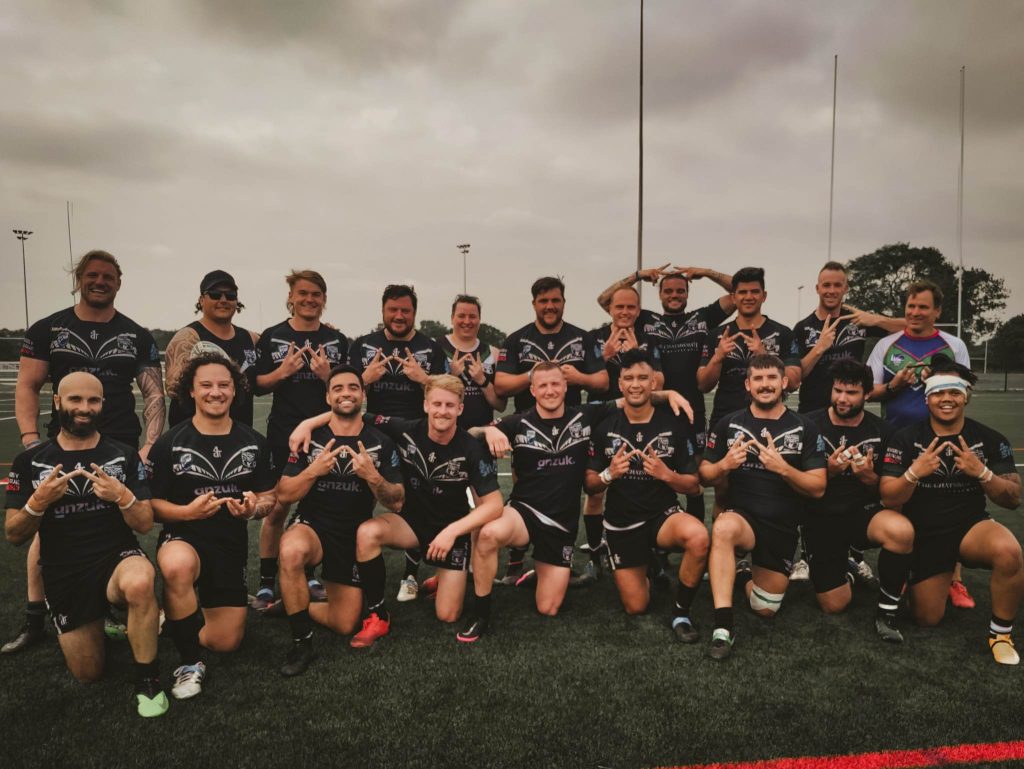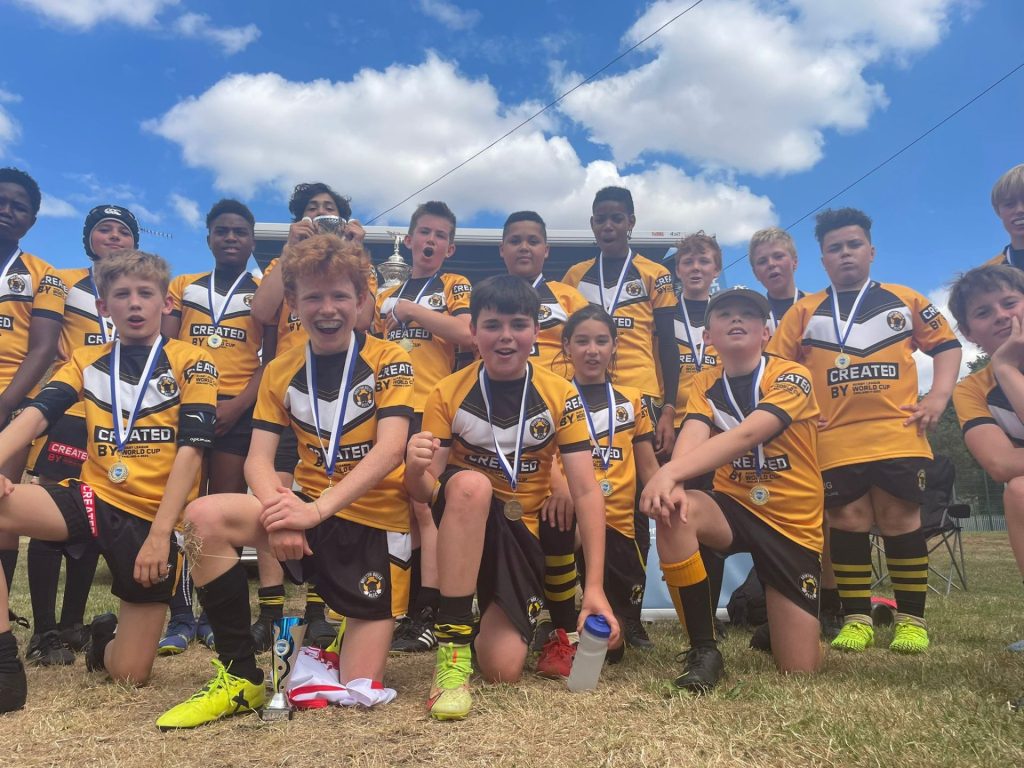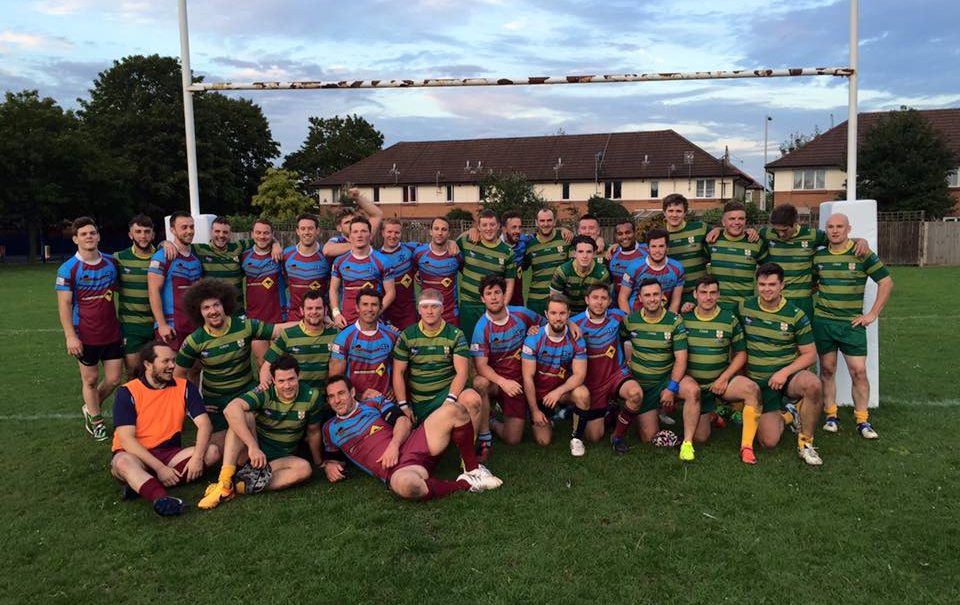As Stephen Crichton received the ball in line with the posts, England rugby league fans feared the worst.
Just moments later, their worst fears were realised: Crichton’s drop goal sailed over the posts and the 40,000-strong crowd were hushed into silence.
Samoa’s victory over England was significant for a number of reasons.
It was Samoa’s first time they had reached the Men’s Rugby League World Cup final but it was also the only game of this World Cup to be held in London.
Rugby league’s traditional heartlands are exclusively northern but the attendance at London’s sole World Cup fixture offered a glimpse into the untapped market of London rugby league.
At the grassroots, the story is no different and a number of well-established clubs and leagues present a vibrant community full of potential.
One such club is Wests Warriors, founded by Kimbo Parkinson.
Parkinson moved to England in 2005 and after years of playing touch rugby with mates, decided to found Wests Warriors in 2015 – a side then largely made up of expats from New Zealand and Australia.
He said: “It was quite easy to pick up players in the early days because we have a small but tight-nit Kiwi community in London.
“We were quite successful in the first few years and the word got out and after a couple of years, we had local English guys joining us and it just took off from there.”
The Warriors are now one of London’s premier amateur sides, having won the Southern Conference League (SCL) for the last two years, and that success has seen Parkinson’s club expand beyond their traditional Australasian routes.
“We’re about 60% Kiwi and Aussie and then 40% English. We’ve actually got some Serbians and Russians as well that have joined us so it’s a really nice mix.
“Rugby League is starting to have an impact on the community down here in London and if all the teams continue to be successful interest will continue to grow.”
Another club continuing to expand is London Chargers, one of London’s oldest amateur Rugby League clubs.
Founded in 2013 following a merger with South London Storm and West London Sharks, the club has gone from strength to strength playing in the Challenge Cup and seeing numbers on the rise.
Chairman Craig Monteiro said: “We had 90 players this year and last year and we’ll get 40 down to training and pre-season.
“We started off being about 50% Aussie and about 50% northerner with a handful of southerners.
“We are now at the stage where everyone in our SCL Grand Final team this year was English and 30-40% were from the south which is massive.”

The SCL, a regional tournament featuring teams from London and the southeast, was the brainchild of Monteiro and something that has aided growth greatly.
“It’s honestly been the first time we’ve been able to run the same structure for three years in a row for probably the last 15 years.
“The western section of the competition hasn’t been a very competitive league unfortunately but London and the south-east is just booming.”
Such growth is not limited to men’s weekend teams as Brixton Bulls have shown.
The south London club began as a junior club in 2004 with a men’s side created in 2016.
Their men’s team were crowned London Men’s League champions last year but junior rugby league remains at the core of the Bulls’ ethos.
Rick Jones, Brixton Bulls’ primary and junior officer, said: “We have managed to fill up the age groups as we’ve been growing over the last six or seven years such that at U12’s last summer we had a squad of 25 and won the South East Championships.
“The men’s team is a really interesting mix of local juniors that came all the way through those age group sides, students who have moved to the area, plus a few northerners and Aussies, and a few locals.”
All these positive signs of increased participation tell only part of rugby league’s story in London and the south, however.
London Broncos remain the only professional side and currently sit in the championship whilst financial cuts, spearheaded by Sport England’s 38% reduction in funding in 2017, have crushed once promising developmental pathways and spurned the opportunity for seismic growth of the sport down south.
All three clubs are in agreement that for rugby league to truly take off, it’s a case of financial backing and resources.

Warriors’ founder Robertson said: “All we want is to play Rugby League and for the Rugby Football League (RFL) to recognise us and do a little bit more for us.
“We could really grow the game if we got a bit more funding to push out more advertising, to pay for better facilities, training equipment – if something looks good, people are going to want to join.”
For Monteiro, who has aspirations of a permanent residency for his Chargers side, infrastructure is a crucial part of expanding the game.
“We want to be in a position where we have a place that we can call home.
“There’s such a big appetite and demand for it and if you combine with other clubs and provide junior setups as well it could be massive.”
For Jones and his Brixton juniors, increased funding for junior coaching and participation is vital to maximising its potential.
“The number one thing we would like would be more support for the other clubs particularly to help their primary age group players.
“There used to be quite a lot of funding and support in developing coaches across London and these and a lot of that disappeared five or six years ago.
“We can work really hard and provide a great experience for as many primary school kids to play rugby as possible but in order to maximise that we need people to play against and festivals to take place and we could do with more government body support to help the other clubs have those primary age group teams.”
London’s amateur clubs tell a story of two halves: teams brimming with excitement and passion but hamstrung by administrators and finances.
But the Chargers, Bulls, and Warriors, as well as the reams of other amateur clubs in London won’t be dissuaded from their selfless role in growing the sport on a grassroots level and it’s that dedication and hope that will ultimately see communities benefit from the sport for years to come.
For more of South West Londoner’s sports coverage, click here.
Featured image credit: London Chargers





